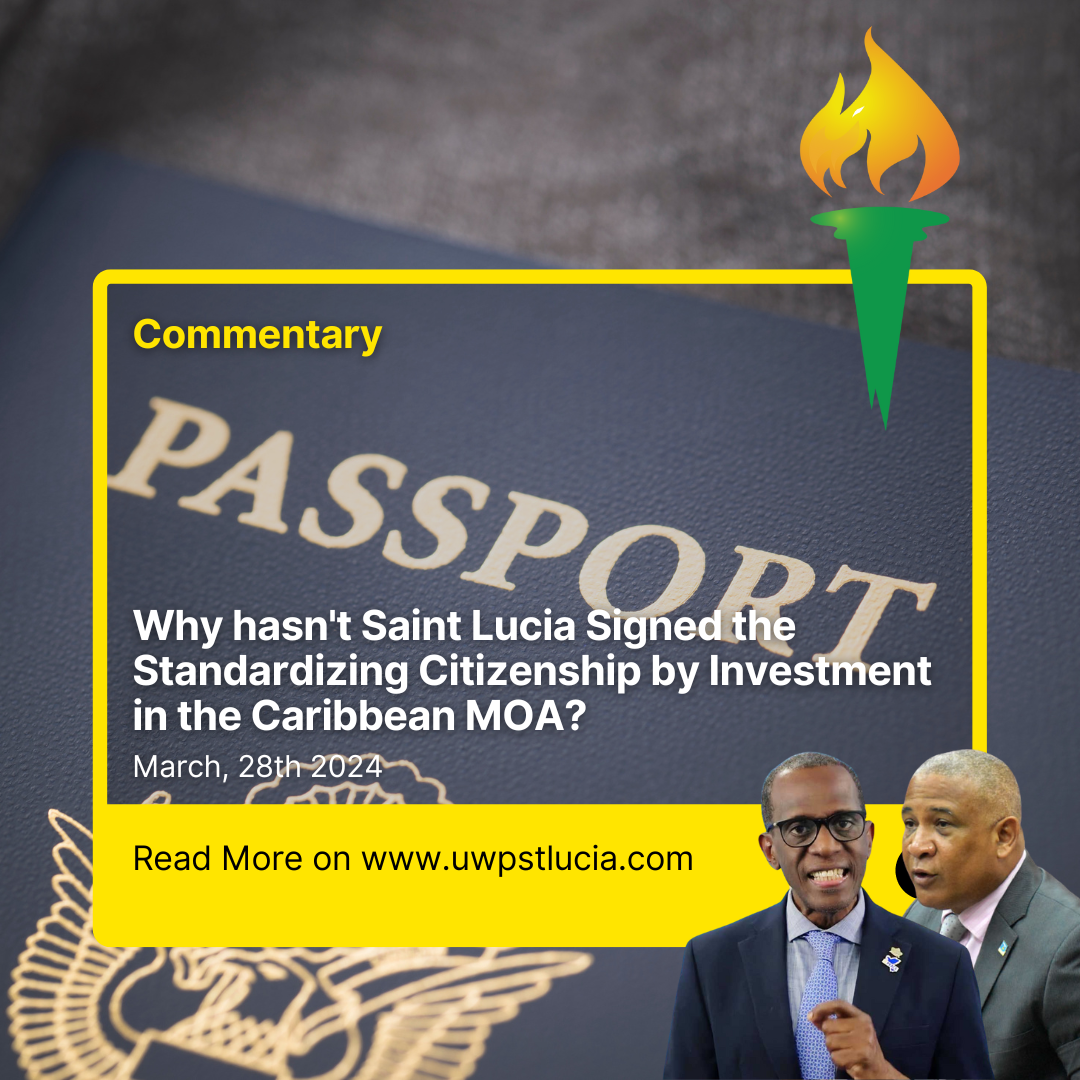On Wednesday, March 20, 2024, leaders from Antigua and Barbuda, Dominica, Grenada, and St Kitts and Nevis convened virtually to sign a Memorandum of Agreement (MOA) aimed at standardizing Citizenship by Investment (CBI) programs across the Caribbean. However, conspicuously absent from this gathering was a representative from Saint Lucia. This begs the question: why hasn’t Saint Lucia signed on to this significant initiative?
The MOA, signed by the four Prime Ministers, outlines various commitments and objectives intended to enhance transparency, accountability, and cooperation within the CBI sector. One of the key provisions of the MOA is the establishment of a minimum CBI threshold of $200,000, a measure aimed at harmonizing investment requirements across participating countries.
Currently, the minimum investment thresholds vary among CBI jurisdictions, with Antigua and Barbuda, Dominica, and Saint Lucia requiring a minimum investment of $100,000, while Grenada mandates a capital outlay of at least $150,000. St Kitts and Nevis, on the other hand, maintains a minimum CBI threshold of $250,000.
In addition to standardizing investment thresholds, the MOA includes provisions for sharing applicant details, enhancing transparency in fund utilization, establishing a regional competent authority, setting common standards for CBI promotion, regulating CBI agents, and providing joint training for program administrators.
The absence of Saint Lucia’s signature from the MOA raises questions about the island’s stance on regional cooperation and its commitment to aligning with international best practices in the CBI sector. As other Caribbean nations demonstrate a willingness to collaborate and uphold common standards, Saint Lucia’s decision to abstain from this initiative warrants scrutiny.
Explaining their signatures, leaders from participating countries emphasized the importance of restoring visa-free access, addressing concerns raised by international stakeholders, and showcasing responsible governance in managing investment migration programs.
Roosevelt Skeritt, Prime Minister of Dominica, underscored the MOA’s significance in addressing the concerns of the European Union and other international partners while emphasizing the need for standardized due diligence processes and information sharing among participating countries.
Dr. Terrance Drew, Prime Minister of St Kitts and Nevis and current OECS Chairman, highlighted the MOA as a testament to the region’s commitment to operating sustainable and law-abiding CBI programs.
As discussions surrounding the standardization of CBI practices continue, concerns from local, regional and international partners continue to be raised regarding Saint Lucia’s reluctance to initially sign this agreement. Why wouldn’t Philip J Pierre and Ernest Hilaire want to enhance the integrity and credibility of the Saint Lucia’s Citizenship by Investment programme? Something smells fishy!


Ministry of Infrastructure’s Budget cut by $50 Million in so called “Year of Infrastructure”
In what was supposed to be the year of infrastructure development for Saint Lucia, Leader of the Opposition Hon. Allen Chastanet has made the stunning revelation that the budget of Infrastructure Minister Stephenson King has seen a staggering reduction of $50 million reduction as per the Government of Saint Lucian’s Estimates of Revenue and Expenditure for 2024/2025 The condition of…
Read more
by Content Manager